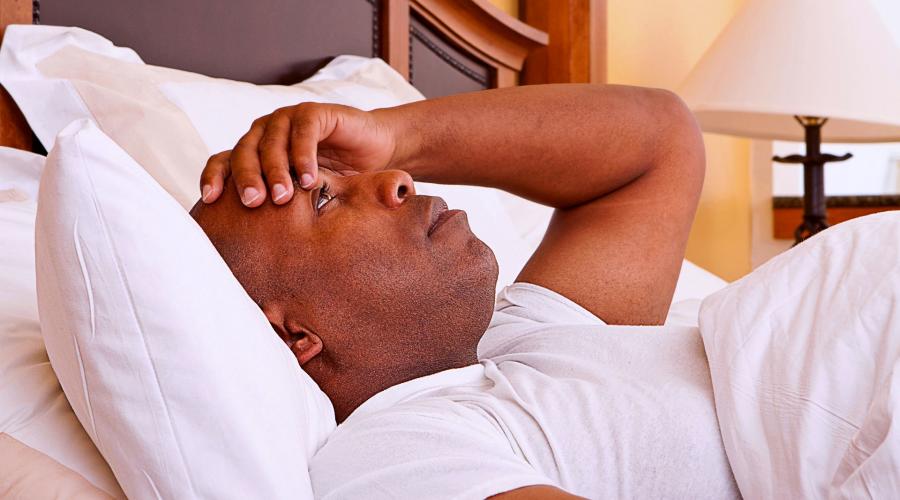
Getting a good night’s sleep is one of the best things you can do for your health. But it’s not always easy to tune out the stress of the day when it’s bedtime - and long-term stress can have a sustained impact on the quality of your sleep. This can turn into a real problem: lack of regular sleep can put you at risk for serious health conditions, including obesity, heart disease, and diabetes.1 Thankfully, there are some easy steps you can take to manage your stress and how to sleep when stressed and anxious.
Read More: Tips For Better Sleep
Why Sleep Is Important
Many of us aren’t getting enough sleep or are too stressed to sleep, and we’re missing out on its health benefits. Consistent, high-quality sleep is associated with a huge range of benefits2 for your mind and body, including:
- Better productivity and concentration
- Improved immune function
- Healthier heart by lowering blood pressure
- Sharper brain
- Improved weight control3
Unfortunately, high levels of stress in your work or personal life can interfere with sleep - and with its associated health benefits. In this blog, we’ve gathered some tips for managing stress to get a better night of sleep.
Finding Balance
It can be challenging to separate the stress of your day from your sleep at night. And the stress/sleep cycle feeds itself - adults who sleep fewer than eight hours per night are more likely to report symptoms of stress.4 If you find that your sleep is consistently impacted by stress, then it’s time to take a step back and develop some strategies for managing stress.
Work/Life Balance
Concerns about work can be a major source of stress. In fact, concerns about work, money, and the economy are frequently cited as major concerns for Americans.5 But when work impedes on your ability to enjoy life outside the office, then you might also find it impacting your sleep. You can take proactive steps toward improving your work/life balance6 by:
- Managing your time: Don’t feel like you have to say “yes” to every project or committee that comes across your desk. Make sure you have enough time in your day to accomplish your tasks without feeling stressed or overwhelmed.
- Leaving work at the office: Admittedly, this can be challenging in the era of work from home. But having a separate space to do your work is crucial to separating work life from home life. If that’s not possible in your home or apartment, then have a routine that marks the end of your work day and your transition to your personal time. This could be as simple as taking a walk when you’re finished with work for the day, signifying to your mind and body that it’s time to relax.
- Keeping emails out of the bedroom: You probably don’t need to be responding to emails right before bed. If you can, go ahead and delete that email app from your phone - better yet, leave your work electronics in the office, and outside of the space where you sleep.
Additionally, speaking to your manager about implementing a flexible work schedule can help you have better control over your working hours7 - letting you sleep and rest when it works best for your body.
Read More: Tips For Creating A Better Work-Life Balance
Holiday Stress
‘Tis the season for stress! While the holidays can be a joyful time spent with family and friends, the extra stress and obligations can seriously impact your sleep. Thankfully, managing holiday stress doesn’t have to be, well, stressful. By setting a consistent bedtime, incorporating some daily movement and light exercise, and incorporating a nighttime routine, you can help your body de-stress throughout the day and at bedtime. And while it might feel tempting to dig into Thanksgiving leftovers or Christmas cookies right before bed, that’s probably not your best choice for a good night of sleep.
Burnout And Sleep
Burnout - both personal and professional - can have a serious impact on your sleep. Like finding good work/life balance, avoiding burnout is all about setting boundaries and knowing when to say no.8 If possible, prioritize your tasks throughout the day and week, putting emphasis on high-priority tasks and leaving enough time to accomplish what you need. And remember that it’s ok to ask for help - it takes a village. Finally, focus on progress over perfection.9 A few hours of sleep is better than none, and those few hours can, in time, lead to a full night of good sleep.
Managing Pandemic Stress
Under the best conditions, stress can still interfere with your sleep. And living in the middle of a pandemic is certainly far from the best conditions - in fact, research shows that currently, 58 percent of people are struggling with sleep, and we’ve seen a 20 percent increase in sleep medication use.10 And with many of us working and learning from home, relying more on technology, and binge watching to pass time, it’s no wonder that our sleep schedules and routines have felt the impact. So if your sleep is feeling the impact of the pandemic, you’re not alone.Thankfully, there are a few concrete steps you can take to manage the stress of the pandemic and improve your sleep:
- Create a routine: And stick to it! Take a walk each morning, or start and end your work day at the same time every day. A structured daytime - and evening - schedule can encourage stability and help you get a better night of sleep when it comes time to hit the hay.
- Set technology boundaries: It can feel challenging to set aside our phones and laptops, especially when they help us connect to friends and family. But having phone-free rooms or hours in your day can help your mind relax from the constant screen time stimulation. In fact, it’s a good practice to leave your electronics outside the bedroom - doing a hobby or reading before bed have many more tangible health benefits than scrolling through social media.11
- Turn off the news: You’ve probably heard of “doomscrolling” - the act of continually scrolling through social media to make sure you don’t miss out on the latest (usually bad) news.12 As the name implies, doomscrolling isn’t exactly great for your health, and information oversaturation wreaks havoc on your sleep. So set aside a couple of hours - ideally, in the evening - when you turn off the news.
Take A Deep Breath
It might take some time to learn the best strategies for managing your stress - and that’s ok! Work burnout, holiday stress, and anxiety surrounding the pandemic are real, powerful stressors that can have long-term impacts on your sleep, and learning how to manage your stress might take longer than a couple of nights. Start by reading a few pages of a book before bed, or meditating for five minutes - something that feels small and manageable. Eventually, you’ll find the strategies that work best for you and your sleep.
Articles You Might Also Like
References
1 https://www.nhs.uk/live-well/sleep-and-tiredness/why-lack-of-sleep-is-bad-for-your-health/
2 https://www.medicalnewstoday.com/articles/325353
3 https://www.webmd.com/sleep-disorders/benefits-sleep-more
4 https://www.apa.org/news/press/releases/stress/2013/sleep
5 https://www.apa.org/monitor/2011/01/stressed-america#:~:text=Concerns%20about%20money%2C%20work%20and,taking%20a%20toll%20on%20kids.
6 https://www.mayoclinic.org/healthy-lifestyle/adult-health/in-depth/work-life-balance/art-20048134
7 https://academic.oup.com/sleep/article/37/7/1159/2709357
8 https://www.pennmedicine.org/updates/blogs/womens-health/2016/october/burnout
9 https://www.forbes.com/sites/rachelmontanez/2019/08/18/3-essential-tactics-for-conquering-sleep-deprivation-and-burnout/?sh=36bf7fd2ce97
10 https://www.healthline.com/health-news/coronasomnia-how-the-pandemic-may-be-affecting-your-sleep
11 https://www.webmd.com/sleep-disorders/features/benefits-of-reading-before-bed
12 https://health.clevelandclinic.org/covid-19-insomnia-tips/












